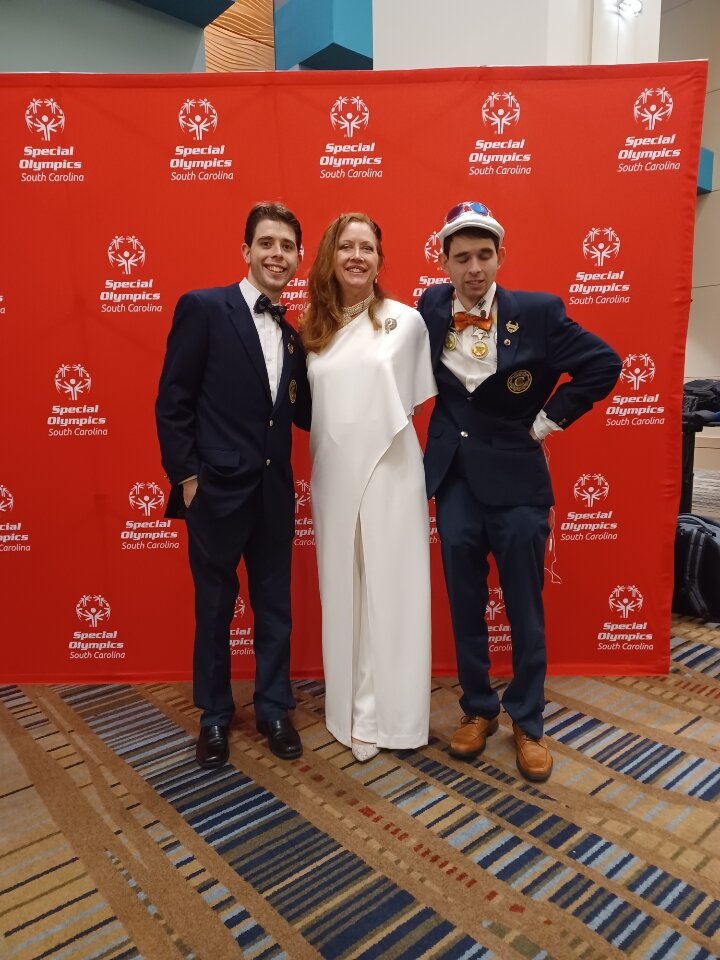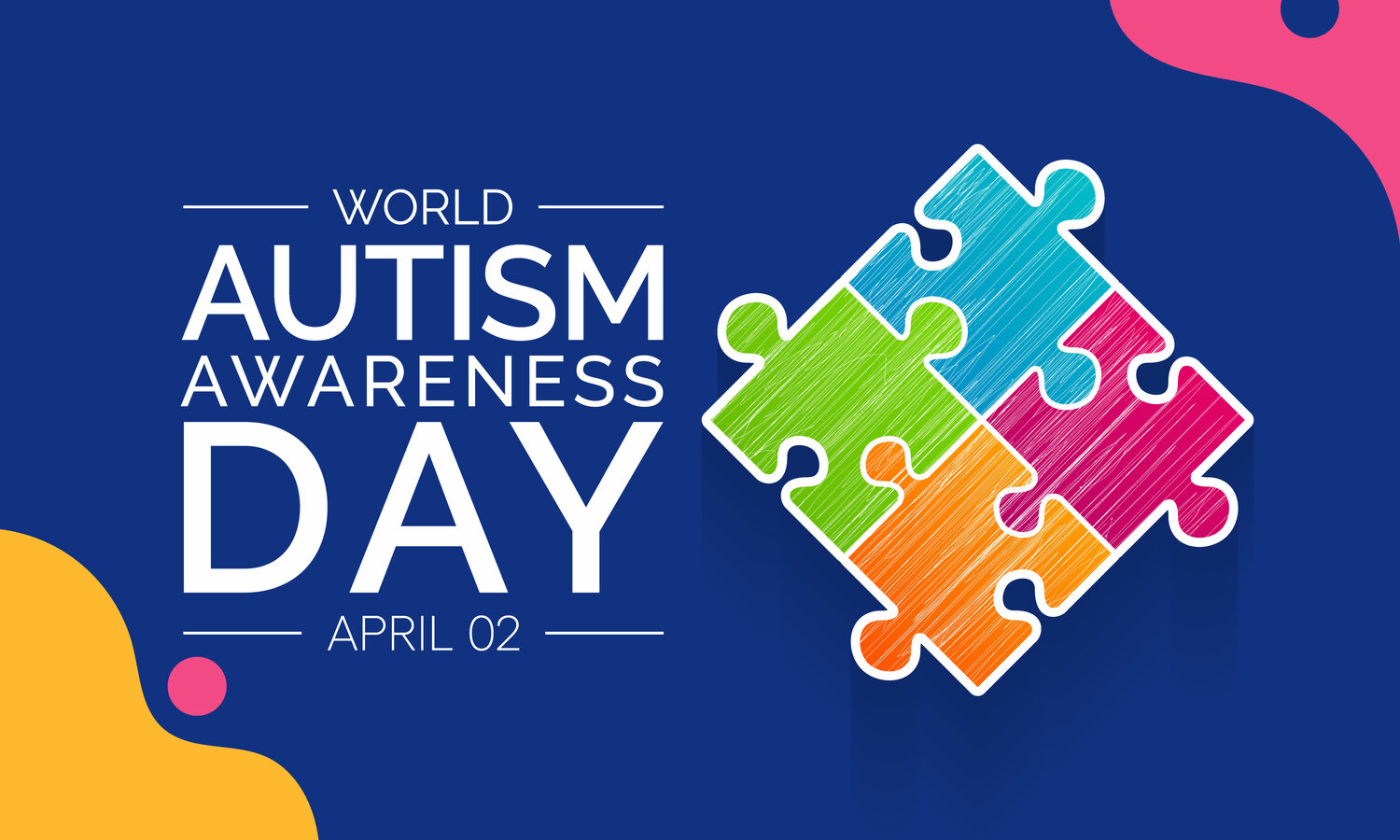April is Autism Awareness Month; Lexington area parents say community is key
One in 36. This is the latest data from the Centers for Disease Control and Prevention regarding the number of children who have been identified as being on the autism spectrum.
This item is available in full to subscribers.
Subscribe to continue reading. Already a subscriber? Sign in
Get 50% of all subscriptions for a limited time. Subscribe today.
Please log in to continueNeed an account?
|
April is Autism Awareness Month; Lexington area parents say community is key
One in 36. This is the latest data from the Centers for Disease Control and Prevention regarding the number of children who have been identified as being on the autism spectrum. Autism affects boys and girls and its causes are not well-understood, per information from the National Institute of Environmental Health Sciences.
As stated on the Autism Society of South Carolina website, it is a complex, lifelong developmental condition that most commonly appears during early childhood. It may impact one’s social skills, communication, relationships and self-regulation.
“People have varying versions so people may experience autism in varying ways,” said Mary Alex Kopp, vice president and chief public relations officer with ABLE South Carolina, a disability led organization in the midlands. “Some may have multiple disabilities. ... People with disabilities are experts in their own lives.”
There are multiple characteristics common to autism defined in the American Psychiatric Association’s Diagnostic and Statistical Manual (DSM-5); it is a wide spectrum.
“We hear many stories from people who are autistic. Some are diagnosed in school and some in adulthood. There are variations because of medical ableism where a doctor is not considering a diagnosis because of stereotypes or maybe a rural area where a doctor isn’t aware,” Kopp said. “There’s also masking. A lot of people are diagnosed as adults with autism who internalize or mask.”
Ryan Unumb
Ryan Unumb, 23, loves to smile, has learned to Uber on his own and is learning to work. He has autism and is mostly non-verbal.
He attends The Unumb Center for Neurodevelopment where he has one-on-one support. His mother, Lorri Unumb, helped found The Unumb Center along with her husband, Dan Unumb. She also helped create Ryan’s Law which was passed in June 2007 and served as a catalyst for autism insurance reform.
“The general public thinks of autism as only these high-functioning people who can speak for themselves and who sometimes have excellent skills in math or music,” Lorri Unumb said. “A quarter of the autism population has profound autism, meaning they need 24/7 care and assistance with daily life skills.”
Her son can say simple words, but the articulation is not always understood, according to Lorri. She explains it’s frustrating for him because Ryan wants others to understand him and it’s frustrating for others because they want to understand.
“He was not quite two when diagnosed,” she said. “His
pediatrician at his 18-month checkup flagged it and said he should be babbling. He wasn’t talking as much.... He was diagnosed at Johns Hopkins. The doctors told us to get a behavior therapy called ABA (applied behavior analysis). He said he needs to get it. It was going to cost us $70,000 a year and insurance wouldn’t cover it.”
Because of costly therapy necessary for Ryan, both she and her husband turned Ryan’s autism journey into their careers.
“Both my husband and I quit our jobs. We wrote legislation called Ryan’s Law,” Lorri said. “The heartache it brought to us brought something positive to the community. Now families can pay or get insurance for therapy.”
“He’ll never live independently but we’re working on building a community in Lexington that will house 24 adults with autism in the community,” Lorri said. “There will be six homes housing four adults with 24/7 caregiver support.”
Ryan also has two younger brothers and the relationship between siblings was “hard at times because they’ve been bitten or pinched,” according to their mother. “It hasn’t been a normal upbringing but they understand. They’re supportive and I think they’ll grow up to compassionate humans because of this.”
Lorri’s advice for parents is to never give up.
“Fight hard for your child to get help and intervention. It’s considered a lifelong diagnosis but it’s not static. You may always have a diagnosis but it can change dramatically in how you function in the world and with people,” she said. “It is exhausting as a family and family life is never normal but it’s worth it. The other thing I’d say is it gets easier as you go. It’s so mentally and emotionally hard for years. For years we couldn’t go into a restaurant or church.
“Now [Ryan] travels on a plane, he goes to church. It gets better as they get older and build skills. It’s important for parents new and young on the journey to know that.”
John and Jackson Doudoukjian
John and Jackson, 25 and 26, enjoy swimming and tennis. The two brothers are 18 months apart and both have autism.
Their mother, Katherine Doudoukjian, helped fight for them from a young age and she says that the pediatrician was advanced for the time. Combined with the pediatrician’s progressiveness and Katherine’s background in education, her boys were provided support early on.
John was diagnosed at two-and-a-half years old and Jackson was diagnosed at one year.
Doudoukjian was a teacher at the time and took every class she could “under the special needs umbrella” so she could learn more about autism. She eventually had to quit her job to stay home with her boys.
They finished high school with a certificate of participation which doesn’t aid them post-high school. They are currently learning job skills at a tennis park; they clean tables, mop and other learn cleaning duties.
“Delay is not a denial. It will take longer but they can achieve,” their mother said, adding that because of the boys’ ages, she’s “at a crossroads.”
“Do I target work and independence or target for a safer environment? Routine is very important to them,” she said.
Special olympics has been an asset for the brothers who enjoy staying active and making friends their own way.
“It’s different from traditional friendships. They do have special olympics friends but when they have conversations, it’s a different depth of interaction,” Katherine said.
What started as something for their safety turned into a love of swimming for both boys.
As for parents of children with autism, Katherine says her best advice is to find a community.
“If you have a friend that has a special needs child, the best thing you can do is lend a helping hand,” she said, adding that families with children with autism deserve to be in public like anyone else. “[Parents] may be doing the best they can at the moment but you can’t isolate special needs people.”
Other items that may interest you












Comments
No comments on this item Please log in to comment by clicking here